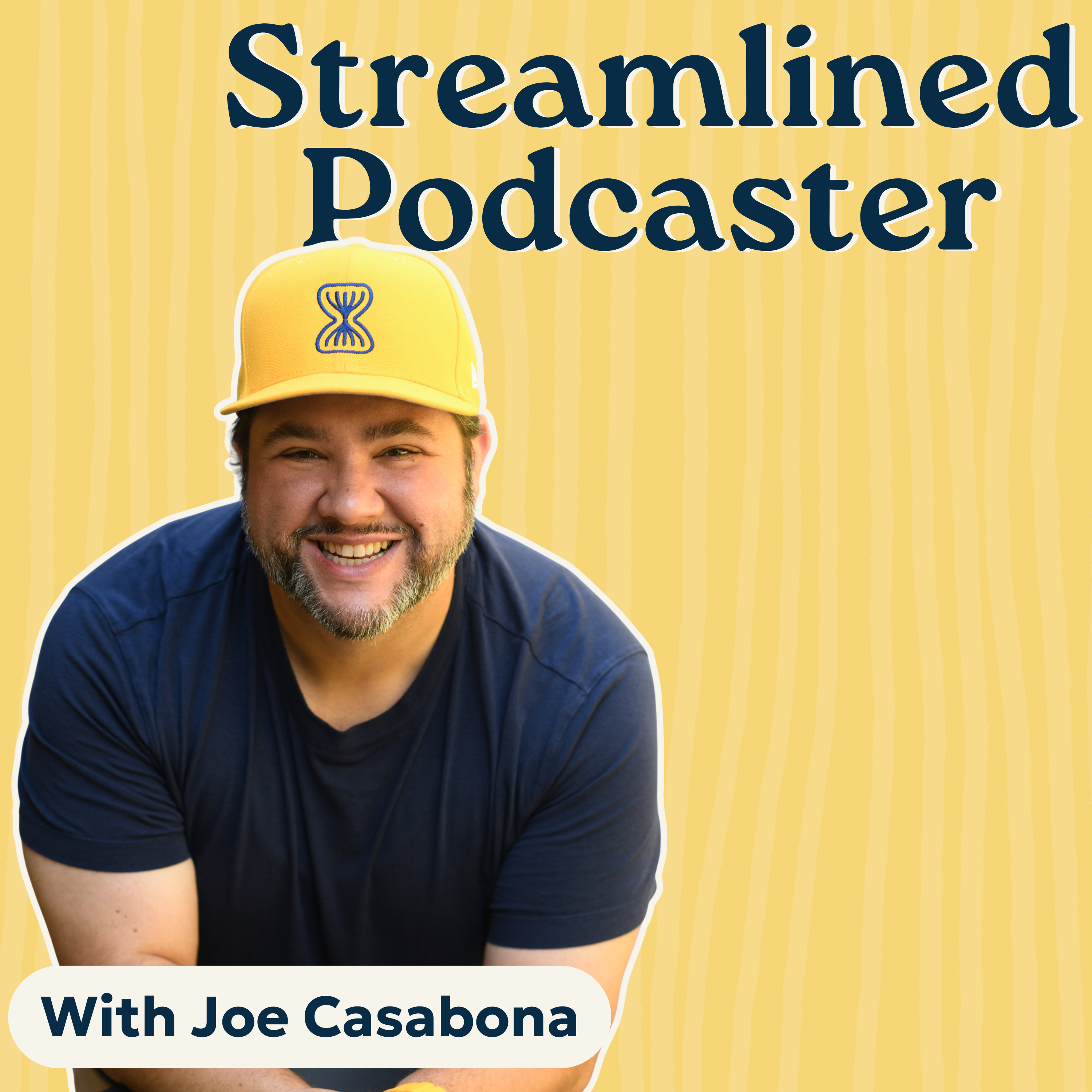
Podcasting Made Simple
Podcasting Made Simple is the premier podcast about podcasting! We’re here to help podcast guests and podcast hosts reach more listeners and grow their income so they can change more lives! Join Alex Sanfilippo and other podcasting industry experts as they share how you can level up on either side of the mic! (Show notes and resources: https://PodMatch.com/episodes)
Podcasting Made Simple
Questioning Yourself to Become a Better Guest | Joel Bouchard
Do you ever find yourself struggling to connect with podcast hosts? Building your experience as a podcast guest can be tough work! Thankfully, there is a strategic way to ensure you connect better with hosts and their listeners. In this episode, Joel Bouchard shares how philosophical reflection can lead to more productive and fulfilling conversations! Get ready to refine your purpose and approach so that you can start connecting with hosts and listeners on a deeper level!
MORE ON THIS EPISODE: HTTPS://PODMATCH.COM/EP/292
Chapters
00:00 Questioning Yourself: Becoming a Better Podcast Guest
01:57 Fixing the Disconnect: Using Philosophy in Podcasting
03:51 The Three Types of Podcasts that Accept Guests
05:42 Asking Questions and Listening: Keys to Being a Great Guest
08:31 Knowing What You Have to Offer: Targeting the Right Podcasts
09:59 Engaging in Conversation: Serving the Host and Audience
11:25 Podcasting with Purpose: Finding Happiness and Fulfillment
Takeaways
- Question yourself and understand your purpose for podcasting
- Use philosophy to address unexamined traits and have meaningful conversations
- Different types of podcasts require different approaches
- Ask your host questions and listen to their questions
- Focus on what you have to offer and engage in conversation
- Have fun and let podcasting leave you feeling happy and fulfilled
MORE ON THIS EPISODE: HTTPS://PODMATCH.COM/EP/292
PodMatch has officially launched a podcast network for independent interview-based podcasts! To apply to be part of the network, please visit https://PodMatch.com/network and press the "Join Network" button in the top center of the screen. While you're there, be sure to check out some of the incredible shows in the network!
You're listening to Podcasting Made Simple. Hi, my name is Joel Bouchard and today I'm here to talk to you about how to become a better podcast guest by questioning yourself. When I say question yourself, I'm not talking about conducting mock interviews to sharpen your responses or testing your content knowledge on expected questions or really any other overtly marketable practice. What I'm talking about is asking why you actually podcast. I'm hoping that what you'll find by indulging in my blasphemous request to forget marketable skills for 10 minutes is the most marketable skill of all, purpose. You might think you already know your purpose for being a guest speaker on podcasts, but if you ever find yourself feeling disconnected from hosts, fielding questions that don't seem appropriate for you, or getting subpar reviews or little feedback, there's a good chance you've either misunderstood yourself or your place in the podcast ecosystem. The good news is there's a tool to fix this, and I want to demonstrate it through some advice from the world's top podcaster. Here's what he has to say about podcasting the right way. Humanity is at its best when we're questioning ourselves and each other. We need to remember that we can't teach anybody anything. We can only make them think. Understanding the question being asked is half the answer. Intelligent people learn from everything and everyone. Average people learn from their experiences, and stupid people already have all the answers. So this wasn't said by a podcaster, but it's actually an amalgamation of curated paraphrases from Socrates about the nature of conversation. Because that's what podcasting is, a conversation. Sometimes as guests, we forget this. And when we do, we not only heard our own message, but we disrespect the host, the show, and what podcasting is about. So if the reference to Socrates didn't tip you off, the tool to fix your podcasting disconnect is philosophy. I'm going to outline why that is. what problems it addresses, what you can do about it, and what to expect from it. I need to preface this by noting that philosophy is an inherently long, complex, and ambiguous process. And the purpose of this talk is to give you short, simple, and precise advice. So the work you start here won't end here. You'll need to continue to think and revise your philosophy of podcasting continually throughout your journey. I always tell people that philosophy is everybody's favorite topic. They just don't know it yet. That's because our philosophy is the reason we believe and do what we do. So we all have one. It's just that some of us haven't thought about it very much. If you've ever read a book or watched a movie or TV show and spotted a continuity error, what that is is essentially a philosophical failure, a break in logic. We all possess these types of errors in our own thinking. And while sometimes they present as big things like biases or false beliefs, they can also be smaller things that are even harder for us to notice. like self -centeredness or a lack of perspective. When these unexamined traits find their way into our podcasting approach, they lead to an uncomfortable disconnect with the host and audience that you as the guest may or may not notice, but it's gonna certainly adversely affect your messaging. As a podcast guest, I often have pre and post show conversations with hosts about their experiences with special guests. I hear the same thing over and over. There's some fascinating and knowledgeable guests out there. And there are some guests who only think about themselves. As a podcast host myself, I'm tempted to agree with this assessment. But as a philosopher, I needed to dig a little deeper. And by doing so, I believe I found the root issue. This is what it boils down to. There are three types of podcasts that accept guests. Those looking to talk about products, those looking to talk about knowledge, and those looking to talk about ideas. For instance, some podcasts I've been on want to talk about the latest album I've released. which is a product. Some shows want to talk about a specific topic in psychology I've studied, which is a specific type of knowledge. Some shows just want to have a back and forth about a series of loosely related topics, like an organic conversation. And this is essentially about ideas. What I've learned is that each of these types of podcasts requires the right approach. If I go on a podcast that wants to talk about my latest album and instead I share my life's journey, then the host will feel a disconnect and attribute it to self -centeredness. If I go on a show that wants to talk to me about a specific psychological topic and instead I talk about the book I'm writing, the host will feel a disconnect and attribute it to self -centeredness. If a host wants to have an engaging unstructured conversation and I bring everything back to a psychological paradigm I've studied, well, you guessed it, the host will feel a disconnect and attribute it to self -centeredness. And here's the thing, we are all self-centered. Not because we want to be, but because we have no choice. It's built into the subjectivity of our consciousness. Even if I'm actively trying to be empathetic, I'm still imagining what somebody else is thinking from my perspective. So how do we address this problem? Let's revisit our Socrates paraphrases from earlier. Humanity is at its best when we're questioning ourselves and each other. This statement highlights the importance of not assuming we understand ourselves, our reasons for podcasting, or the correctness of our approach. It also provides an actionable bombshell for podcast guests. Ask your host questions. This is especially useful for podcasts about ideas, but I've yet to encounter a host who didn't want to be an active participant in the conversation. The next thing he said was, we need to remember that we can't teach anybody anything. We can only make them think. The takeaway for podcast guests here is to not assume a position of superiority or attempt to force your position on hosts or audiences. Some of you have controversial positions and there's nothing inherently wrong with this. Intellectual conversations are built on the examination and debate of ideas. However, you must always allow room for the host to question you. And most importantly, you must always be open to the notion that you may be wrong and that being wrong or ignorant is the only way true growth can occur. Next, Socrates says understanding the question being asked is half the answer. Listen to your host. Listen to their questions. Don't be a prisoner to your talking points and don't be thinking about how you're going to respond while the host is still talking. Don't be afraid to pause. Understanding the questions being asked is the only way a coherent interview can take place. Finally, my last paraphrase from Socrates was, intelligent people learn from everything and everyone, average people learn from their experiences, and stupid people already have all the answers. While I agree with this assessment, I think the podcasting setting is more nuanced than this. If a guest seems like they have all the answers when they obviously don't, they may be stupid, but more likely they're just nervous, inexperienced, or overly devoted to their talking points. All of these problems stem from a simple oversight. The failure to remember that podcasting is just a conversation. Every time I remember this, my guest appearances go much smoother. Average people learn from their experiences. This is true, and while it's enough to get us by in everyday life, being a podcast guest means having something above average to offer the host an audience. So if you're relying solely on your own thoughts, experiences, and point of view to carry you through, The host, audience, and maybe yourself will probably find the results unsatisfactory. Intelligent people learn from everything and everyone. Notice that Socrates doesn't say intelligent people learn from scholarly texts and other intelligent people. To be a great podcast guest, you have to realize you can learn from everything and everyone, because not every podcast host is going to be a top talent. And some of the questions and content presented may be subpar. rather than becoming flustered, frustrated, or throwing in the towel, we need to identify what we have to offer this guest and this audience, and in turn, identify what we can learn from them. So what are some actionable ways we can implement these insights? It starts with legitimately figuring out what you have to offer. Is it a product? Are you an artist, entrepreneur, business person, or inventor who's trying to get the word out about your album, book, app, gadget? Is it knowledge? Are you an academic, R &D leader, or subject matter expert who can provide insights or answers to questions about areas that lay people are interested in but don't really understand? Is it ideas? And this, to me, is the beauty of podcasting. Anybody can talk about ideas. But to do so meaningfully, you have to have thought deeply about the subject area, and you have to have honed your interpersonal skills to dig out the deepest insights and play off the host. Once you know what you have to offer, you can better target podcasts that are looking for that offering and avoid putting yourself and a host in a bad situation because the fit isn't right. Maybe you're sitting there thinking, but I fit all of those categories. So do I. And this has an upside and a downside. The upside is that the podcasting world is our oyster. We can guest on a wide variety of shows and have a lot to offer diverse audiences. The downside is that adopting a single approach to guest appearances is now out the window. The burden falls on us to be flexible and understand the type of podcast we're appearing on and what those podcasts hope to gain from us. Make no mistake, the podcast is about the audience. The audience is gathered by the show, the show is administered by the host, and the host invites guests into their world. We as guests are the least important piece of this puzzle. And that's why we should always be grateful for appearances and be seeking ways to better serve the show rather than the other way around. When we know what we have to offer and we've identified the types of shows that we suit, the next step is engaging in conversation and the more the better. While we once again let the hosts take the lead here, I found that many hosts love to talk pre -show and that leads to better podcasts and increased insights, including what I'm sharing with you today. Importantly, if you find your approach changing drastically from pre -show to podcast, you're probably losing sight of the conversational element. Remember to listen, remember to ask questions, and remember that you're not running the show or taking the role of teacher. You're there to provide a new insight that is open for discussion. If, if you have talking points, forget about them until the time arises in the conversation and they can be used naturally. Instead, focus on finding out what the host and audience want from you and deliver on that even if you never get to what you want to talk about. I promise you're much more likely to be invited back on and get a chance to talk about it then, which is a much better approach than forcing a bad interview. If it isn't obvious by this point, Know that you have a huge leg up as a guest by listening to the podcast before you appear on it. Finally, like every parent at a T -ball game, I'm going to leave you with a cliche refrain. Have fun. Don't overlook this step. Remember, philosophy is about digging deeper. Understanding that if your primary motivation for podcasting is selling your product, imparting your knowledge, or sharing your ideas, you're likely to burn out unsuccessfully no matter how well you implement the suggestions in this talk. The motivation for having these conversations must be intrinsic. It must come from within. This is a simplified version of Aristotle's eudaimonia. Podcasting should leave you feeling happy and fulfilled. And if it does that for you and your host, then even some shaky appearances won't wreck your career. Trust me, I've had a few. Always remember, it's bigger than us. Thank you. For more episodes, please visit podmatch.com forward slash episodes. Thank you so much for listening.
Podcasts we love
Check out these other fine podcasts recommended by us, not an algorithm.
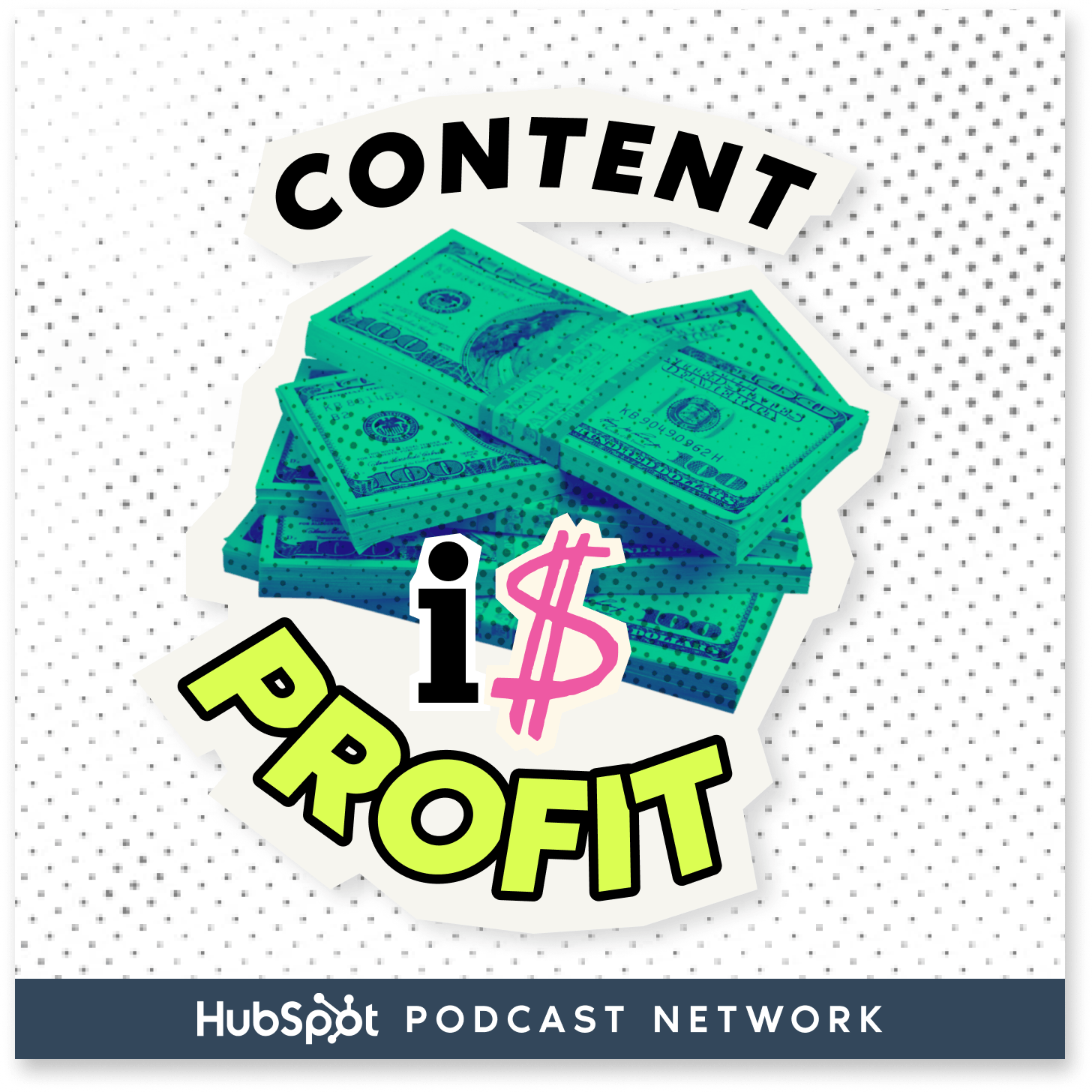
Content Is Profit
BIZBROS
Win The Content Game
Deirdre Tshien - CEO & co-founder of Capsho, AI-powered Content Marketer (the fastest way to repurpose and market your expert content)
Fastlane Founders and Legacy with Jason Barnard: Personal Branding, AI Strategies, and SEO Insights
Jason Barnard Entrepreneur and CEO of Kalicube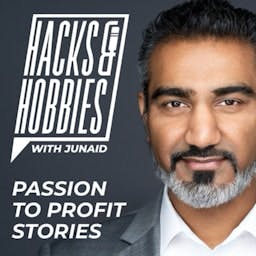
Hacks and Hobbies with Junaid Ahmed
Junaid Ahmed
I Have A Podcast by Vinnie Potestivo
Vinnie Potestivo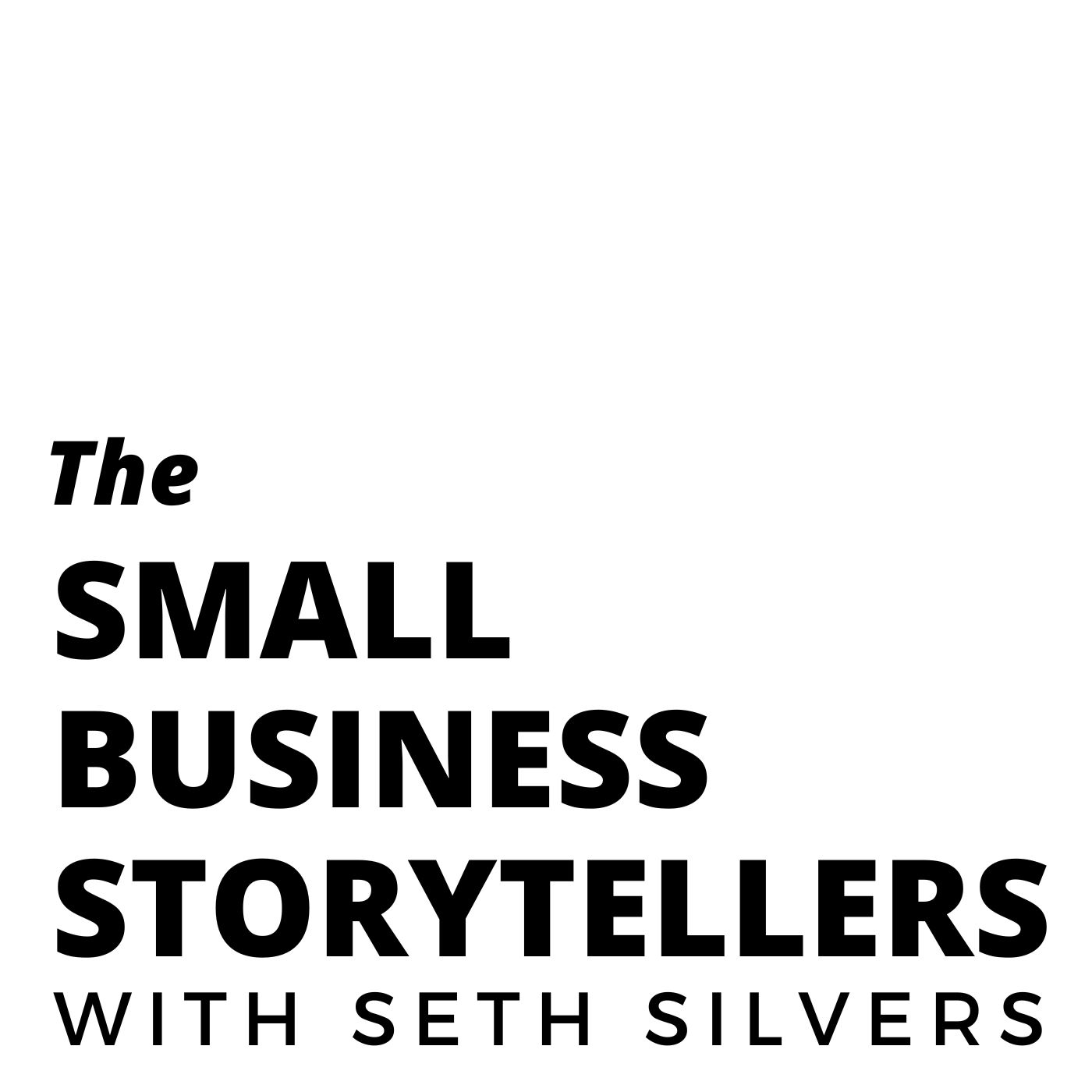
The Small Business Storytellers with Seth Silvers
Seth Silvers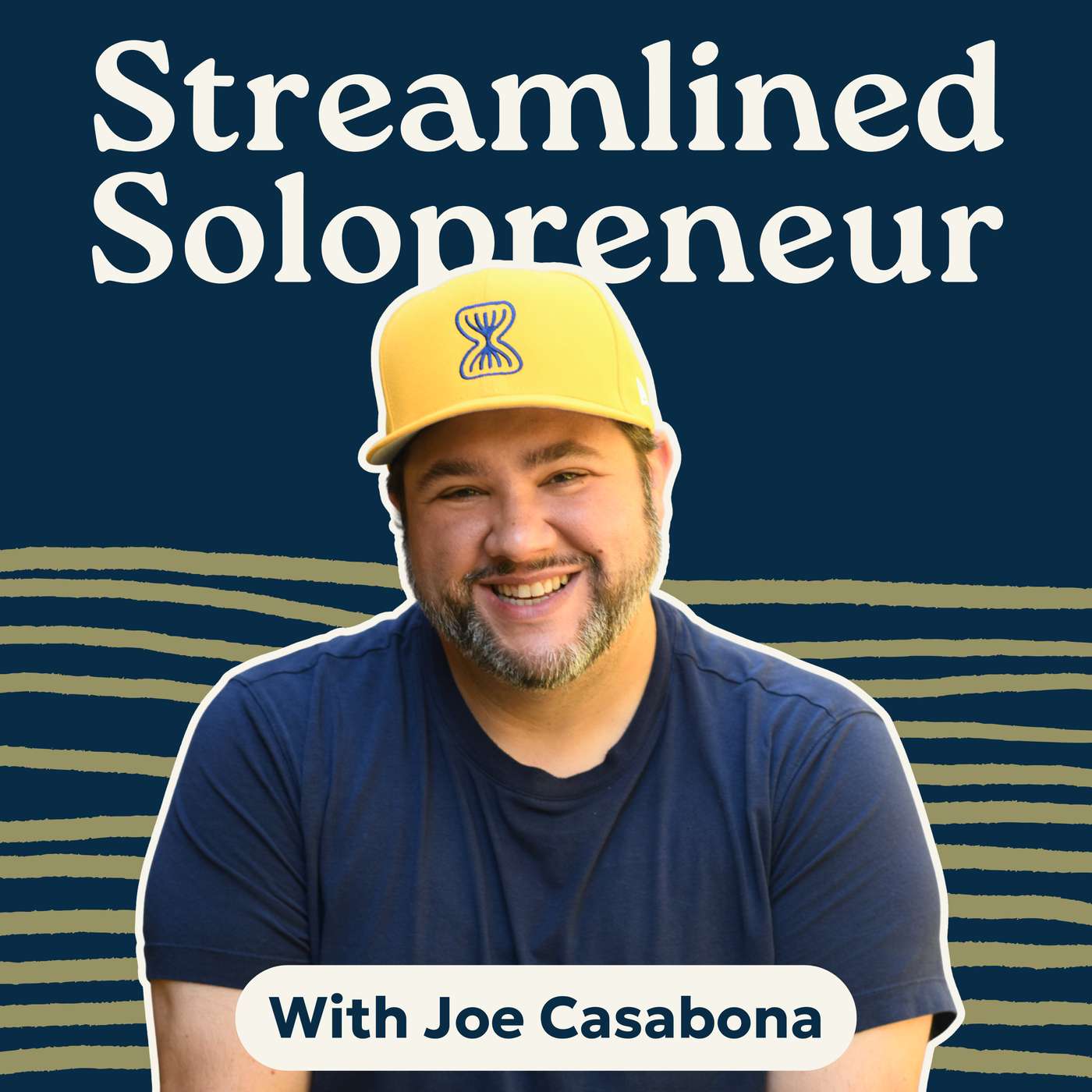
Streamlined Solopreneur: Tips to Help Small Business Owners Grow Without Burnout
Joe Casabona, Business Systems Coach
Insider Secrets to a Top 100 Podcast with Courtney Elmer | Podcasting Strategy for Business Growth
Courtney Elmer | PodLaunchHQ.comDo The Thing
Stacey Lauren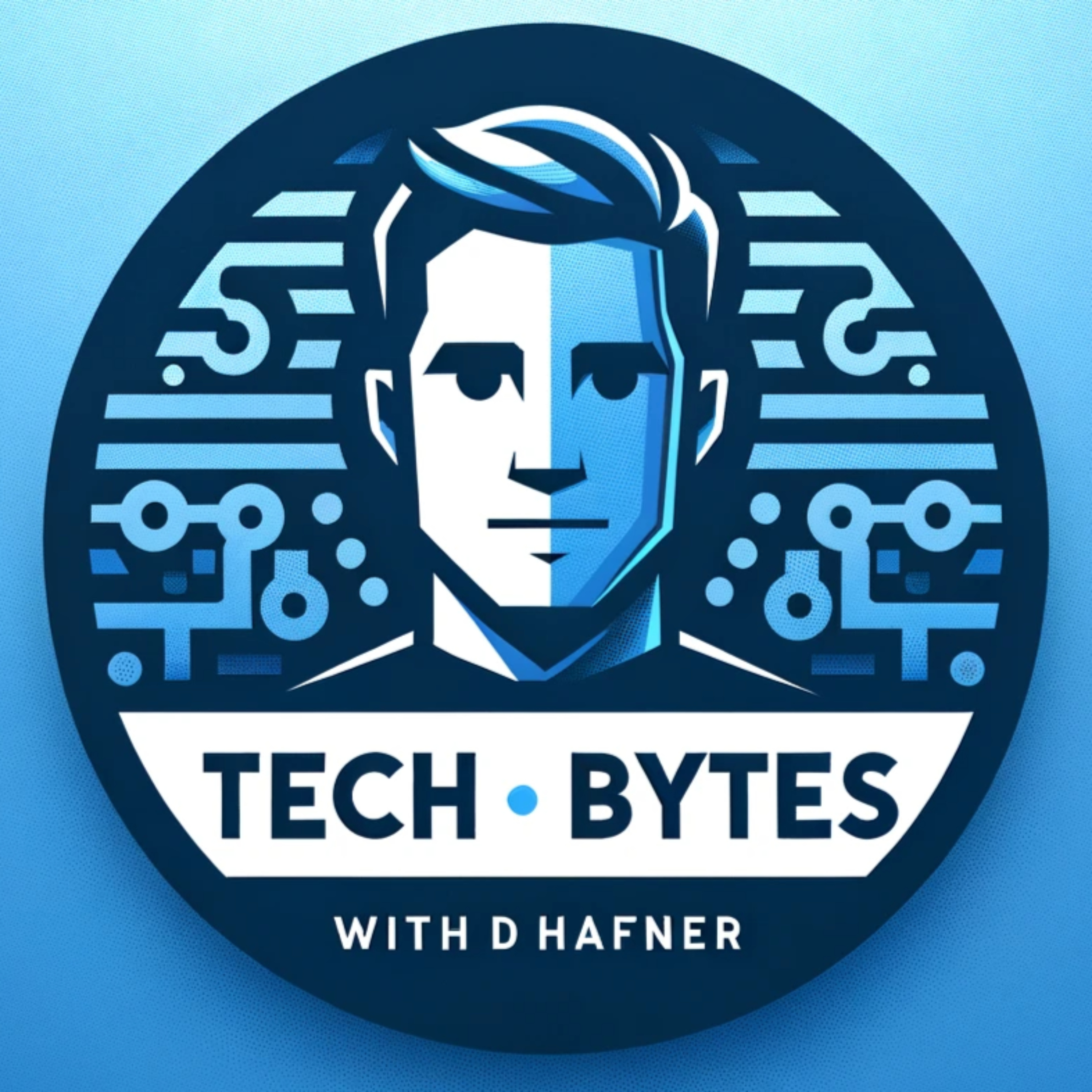
Tech Bytes - with Dan Hafner
Dan Hafner

